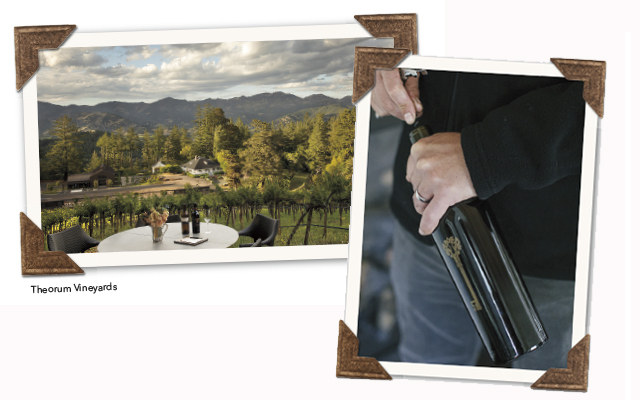Challenges (and Rewards) of Family-Owned Wineries
All Hats are Off to Napa’s Small, Family-Operated Wineries
Among the 95% family-owned wineries in the Napa Valley, 80% are considered small producers. This relatively large club can be dissected into further groupings, such as the pioneers – those whose proverbial and literal roots are closely tied to the evolution of the Valley itself – or the relative newcomers – those fortunate to have recently realized long-held dreams of making wine in this verdant region. No matter their origin histories, the particular challenges faced by smaller, family-owned and family-operated wineries are similar: marketing resource limitations, distribution and fulfillment issues, guest/visitor expectations, and sheer exhaustion due to the essential donning of several hats. “Small” is often code for “short-staffed.” These vintners do it all, from picking grapes, to bottling, to pouring for appreciative tasters. Their work never ends. Yet the consensus among these industrious families is that the rewards outweigh any hardships.
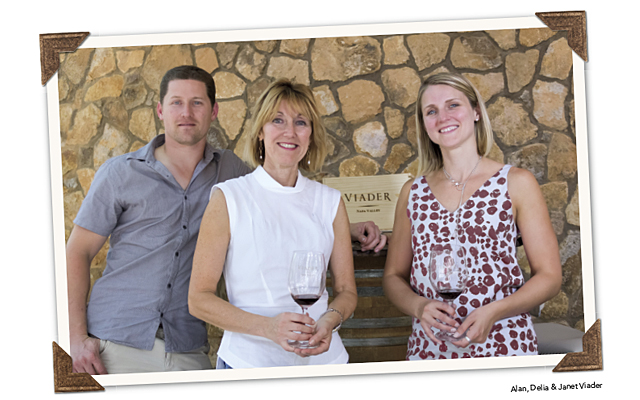
Viader Vineyards & Winery
“The rewards to the dedication and passion my mother and I pour into the business are frankly the quality of the wines we produce,” says Alan Viader, director of operations and winemaking at Viader Vineyards & Winery and son of founder Delia Viader. Alan grew up on the winery’s Deer Park property and since age nine has worked every position in the vineyards and winery. “As a child I walked the vines with my mother and our consulting viticulturalists and winemakers,” says Alan. “Our ability to sense the nuances from one block to the next is unparalleled and our loyal consumers know that. They know we will work the candle at both ends to create the very best possible wine, vintage after vintage. My mother and I talk with our guests and we build long-lasting personal connections with many of them whom we consider extensions of our family, and that is something unique that only family-owned and operated wineries can provide.” Despite the good vibes, Alan concedes to an often frenetic pace. “My mother and I are always busy and caught-up in the operations of the business, making social lives and free time things that dreams are made of,” he says. “So we make work our social life and spend our free time visiting other wine regions or wineries throughout the world. My mother lives on the property which doesn’t help the matter much. She is always working on something new and coming up with the next grand project for us to execute. Her pursuit for excellence is relentless.”
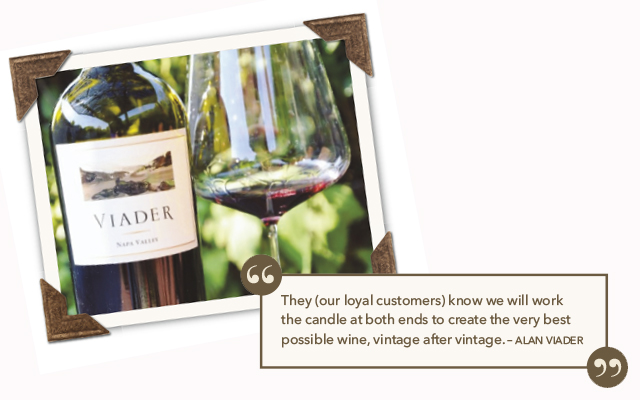
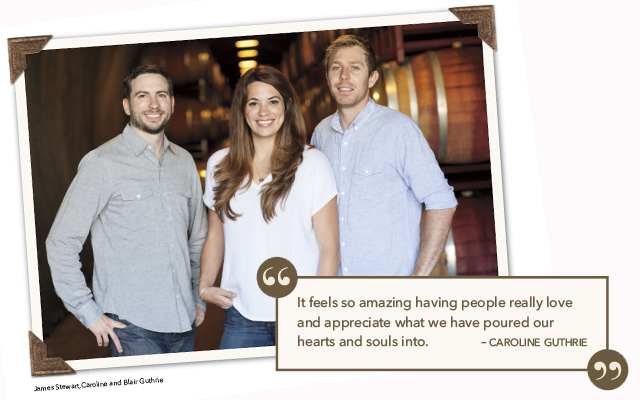
Stewart Cellars
Caroline Guthrie of Stewart Cellars acknowledges the hectic nature of the business. “I wear a few different hats,” she says of her role at her family winery founded by her father, James Stewart in 2000. “I handle all our finances and help oversee operations at our tasting room in Yountville. I do a fair amount of administrative work, like insurance, compliance, bottling supplies, etc. We all kind of do a little bit of everything.” Her husband, Blair Guthrie, is both Stewart’s winemaker and salesman and her brother James Stewart focuses on wholesale and national distribution. He also pitches-in for tasting room events. Caroline says their biggest challenge is competition with the larger corporate-owned wine brands that have greater marketing resources. “Although we’ve been making wine for nearly 20 years, it feels like we are constantly trying to build brand awareness,” she says. But, the Guthrie/Stewart trio wouldn’t change a thing. “It feels so amazing having people really love and appreciate what we have poured our hearts and souls into.”
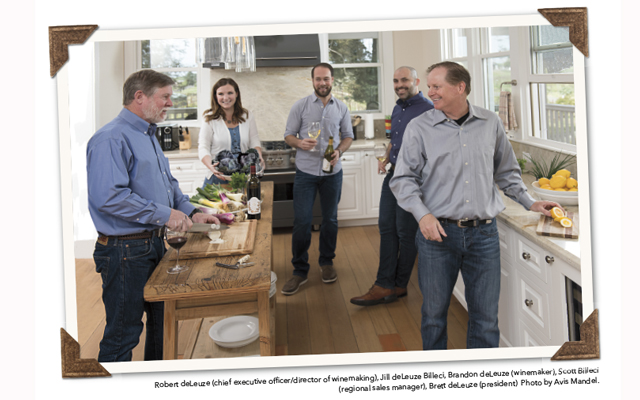
ZD Wines
Stewart Cellars’ two viable decades are indeed admirable, yet others have thrived in the Valley for a great deal longer. Claiming half a century of continual family ownership and steady success is ZD Wines. Founded in 1969 by aerospace engineers Norman deLeuze and Gino Zepponi, ZD Wines is today run by the second and third generations of the deLeuze family. “When we established our Rutherford winery in the late 1970s, we were primarily a winemaking facility, with little attention given to the tasting and hospitalityexperience,” says ZD winemaker Brandon deLeuze. When asked about his family’s challenges and rewards, “The Napa Valley was very different back then; today we strive to make the ZD guest experience equal to the quality of our wines and exceed expectations on all levels.” Perhaps not so much a challenge as a mission, the family has met its goal with its recently renovated, Rutherford-based hospitality center where guests can find enhanced wine and food offerings. “Ongoing family conversations also center around our quest to seek out growers that are certified organic and who align with our sustainability efforts,” says Brandon. “We have a lot of long-term partnerships outside our estate vineyards, and it is imperative that we nurture those relationships to maintain our high quality standards. The biggest reward for all of us is seeing the enjoyment of consumers who are drinking ZD Wines.”
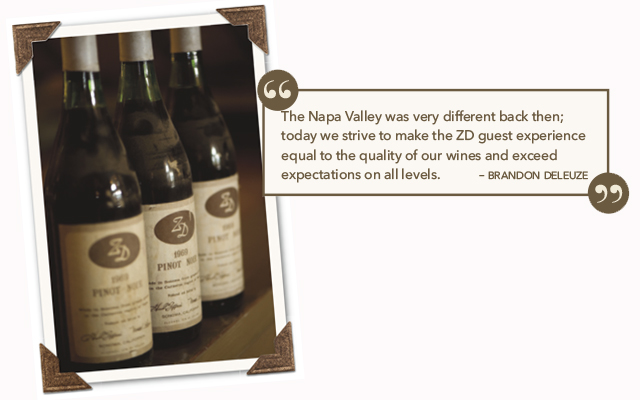
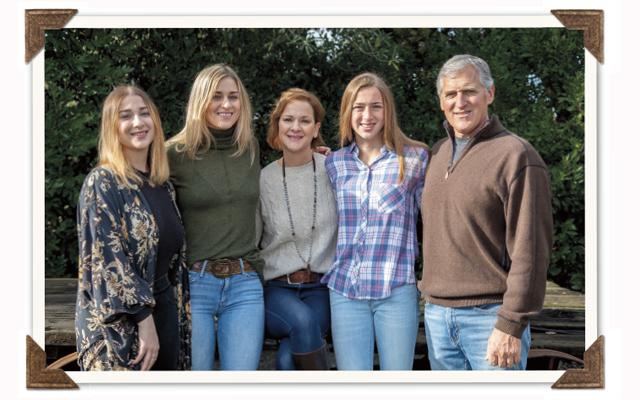
Salvestrin Winery
Salvestrin Winery, located in the shadows of Spring Mountain, has, since 1932, also remained in the hands of three generations, with a fourth ready and poised to one day continue the tradition. First planted in 1850 by Dr. George Belden Crane, the Salvestrin vineyard has been maintained by the Salvestrin family since patriarch John emigrated from Northern Italy in the ’30s. He, and then his son Ed, sold their grapes to local wineries. These days, Ed’s son Rich serves as winemaker and manager of the sustainably farmed estate. He concedes to the same challenges expressed by his fellow vintners, but agrees that the rewards overshadow the challenges. “In general, we tend to be hardest on the ones we are closest to so sometimes it’s a challenge to balance family life with business,” says Rich. “We do our best to stay focused on the end goal and not get tripped up on the small stuff day to day. Being a small winery can create hurdles for distribution, such as fulfillment for larger accounts, and economic significance for a wholesaler,” he adds. “But it’s really rewarding to handcraft small lots of wine that one is able to literally touch from grape to bottle, share with our customers, and see them enjoy what they are tasting. And, watching our three daughters grow up on the family vineyard that my grandparents started in 1932 is pretty special.” C. Elizabeth Winery A bit newer to the scene are Dave Ficeli and his wife Christi Coors Ficeli. Together, they own and operate
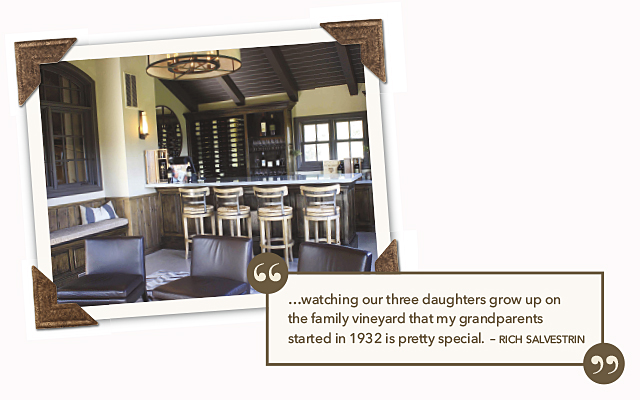
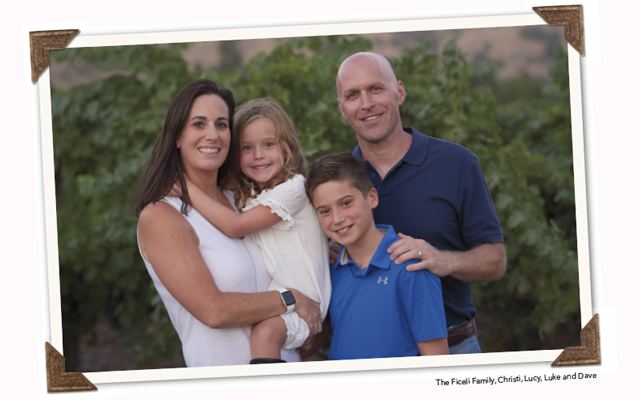
C. Elizabeth Winery
A bit newer to the scene are Dave Ficeli and his wife Christi Coors Ficeli. Together, they own and operate C.Elizabeth Winery, a small, highly focused, micro-lot producer (200 cases annually) of exceptional Cabernet Sauvignon. (Christi also owns and operates Yountville-based Goosecross Cellars, a 5,500-case producer of up to 18 varietals.) The wine-loving duo fell for the Napa Valley during their corporate wine careers and they discussed their winery dream for more than a decade before bringing it to life. “We mostly see the advantages rather than the challenges of owning and operating our own winery,” says Dave, who admits that he needs a reminder now and then that the winery is a business and not just a passion project. Like their fellow vintners, Dave and Christi wear many hats, all while remaining focused on what matters in the moment and not what is currently the greatest distraction. They are conscientious about knowing when the workday stops and family life starts. “We get to do what we love with those we love in the the way we want to do it,” says Dave. “We get to connect with folks who love what we do, and hopefully we are building a legacy for our kids, creating something important that embodies much of what matters to us. And, last but certainly not least, we get to make a wine we love to drink.”
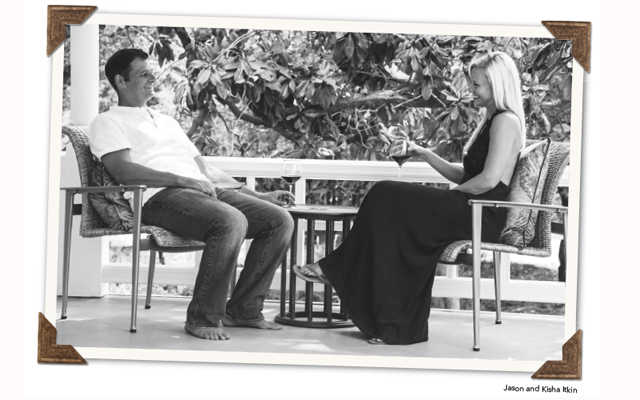
Theorem Vineyards
Also newer to the Valley are Kisha and Jason Itkin of Theorem Vineyards. The couple purchased their Calistoga property in 2012 and spent the ensuing years rescuing, restoring, and renovating several historically significant buildings on their site, as well as preserving and replanting the Diamond Mountain vineyard. Their flagship Voir Dire and Hawk’s Prey Diamond Mountain Estate Cabernets are testaments to both the duo’s diligence and their vineyard’s vitality. They currently produce 1,100 cases annually. “The biggest challenges also yield the biggest rewards,” says Kisha. “As a small, family run business, our team has to do it all from start to finish – whether that means designing the labels or packing wine for shipment – we have our hands in everything. The time and resources required for that kind of attention to detail can be challenging, but when you see someone have that ‘aha’ moment when they first visit the winery and taste the wines, it is the best reward a winery owner can have.” As a client and promoter of small, family-owned wineries, Kerrin Laz shares her perspective. “I like working with these wineries because of the relationships we cultivate,” says the former Dean & DeLuca wine director and now owner of two eponymous Napa wine tasting venues that feature unique, small batch, hard-to-find labels. “These wineries are incredibly gracious when we have guests who would like to visit their properties,” says Kerrin. “And, it feels good to support them by helping to promote and market their wines to those that might not know about them or not have access.” “The significance of ‘family owned’ is much more personal and involved than just the literal meaning,” says Alan Viader. “I feel that to be meaningful to our consumers, we need to be involved in the operations. Wine is as much scientific as it is artistic, so there needs to be something or someone behind the label for there to be a strong tie to that brand. When a family member is involved or was the founding member for instance, there is much more to grab onto as a consumer.” And to that, wine lovers doff their caps and throw their proverbial hats into the air. Cheers.
